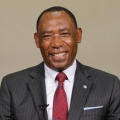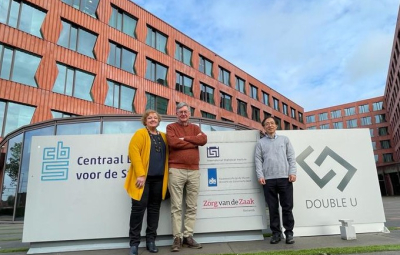As Africa positions itself to meet the challenges of the 21st century, the need for robust, reliable, and timely data has never been more critical. From driving economic growth to addressing pressing social issues, the continent’s development agenda must be increasingly data driven for evidence-based decision-making. Central to this is the role of statisticians, particularly the emerging generation of young African statisticians who are equipped with the skills, knowledge, and passion to shape Africa’s future. The Takwimu[1] Young African Statisticians[2] (TYAS) Programme is at the forefront of this movement, empowering the next generation of data scientists and statisticians to contribute meaningfully to Africa’s sustainable development.
The Sustainable Development Goals (SDGs) and the African Union’s Agenda 2063 highlight the centrality of data in monitoring progress and ensuring accountability. However, Africa’s statistical capacity has historically lagged other regions due to underinvestment in statistics, outdated infrastructure to facilitate processing, and limited human capacity to get the job done. Addressing this gap is crucial, and this is where the next generation of statisticians comes into play. Statistics not only provide insights into socioeconomic trends but also support governments in making informed decisions, allocating resources efficiently, and formulating policies that can uplift communities. As Africa’s economy diversifies and technology becomes an enabler of change for better lives, statisticians must harness the power of data now more than ever before.
Who Are the Young African Statisticians?
The Takwimu Young African Statisticians Programme is a growing network of young professionals and emerging scholars across Africa, united by a common goal - to strengthen Africa’s statistical systems and promote the use of data for development. The Takwimu YAS provides a platform for young statisticians to collaborate, innovate, and advance their skills, helping them stay attune with the global data revolution. Through training and mentorship programs, workshops, and collaborative research initiatives, Takwimu YAS seeks to create a pipeline of highly skilled statisticians across sectors, including public institutions, international organizations, and the private sector. Takwimu YAS also fosters partnerships with academic institutions and national statistical offices, ensuring that its members are exposed to both theoretical knowledge and practical experience.
Empowering the next generation
The Takwimu YAS Programme has played and continues to build capacity by providing a wide range of opportunities for its members to grow both professionally and personally. The Takwimu YAS programme has offered training programs focused on modern statistical methods, data analysis tools, and emerging trends such as big data, machine learning, and artificial intelligence. For instance, young statisticians have been equipped with the skills in analysis of data using R and using data science techniques to fill data to meet the demands of today’s data-driven world.
Through the Mentorship programme, the Takwimu YAS programme intends to pair young statisticians with experienced mentors from the academia, industry, and government to close the gap between theory and practice while providing valuable career guidance and networking opportunities. In addition to technical skills, Takwimu has provided training in statistical leadership to enhance leadership management skills among its members in preparation for their future roles. Takwimu YAS also encourages leadership development of its members by providing opportunities for them to take active roles in policy dialogues, represent young people at regional and international statistical forums, and advocate for stronger national statistical systems.
The Takwimu YAS programme is fostering collaborative research among young statisticians across the continent, encouraging joint research projects that tackle pressing development issues. These projects have not only built members’ research capacity but have also generated insights that can be applied to real-world challenges. Furthermore, cognisant of the importance of diversity and inclusivity, the programme actively promotes gender equality in the statistical profession. Young women encouraged to pursue careers in statistics as well as ensuring that the field benefits from a range of perspectives and experiences.
Impact of the Takwimu programme on Africa’s Development
The work of Takwimu YAS programme is key for the professional development of individual young statisticians for the broader development of the continent through enhanced statistical development for evidence-based policymaking. As the programme encourages young statisticians to step into leadership roles, the new ideas and fresh perspectives they bring with them will drive innovation in how data is used to tackle Africa’s most pressing challenges. Through the Takwimu YAS programme at the African Centre for Statistics at the UN Economic Commission for Africa, a solid foundation for a future where the power of data accelerates Africa’s development has been laid. The programme welcomes individuals and organisations to partner in this pivotal role of nurturing and empowering the next generation of statisticians with the necessary tools and support to drive Africa’s growth and development agenda.
-------
[1] Takwimu was established by UNECA and instituted as part of the Statistical Commission for Africa in 2021. It is built upon the premise that young Africans constitute a critical mass of the current and future statistical leadership on the continent hence their training and engagement in the continental statistical agenda is paramount in ensuring sustainability of the gains made so far, addressing prevailing challenges and advancing the continental statistical agenda as desired. Young statisticians provide a bridge between the current and future statistical leadership and hence must be deliberately natured to ensure that they effectively occupy their place and play their part.
[2] “Young statisticians” refer to students, early and mid-career statisticians, data practitioners and related professions that contribute to the skill-mix of the statistical value chain: demography, population studies, methodology, economics, econometrics, mathematics, geography, geospatial information management, remote sensing, public health, development studies or economics, planning and other expertise required for stakeholder engagement, research, collection design, information technology, data science, data transformation, analysis and data quality management in a statistical data value chain.





